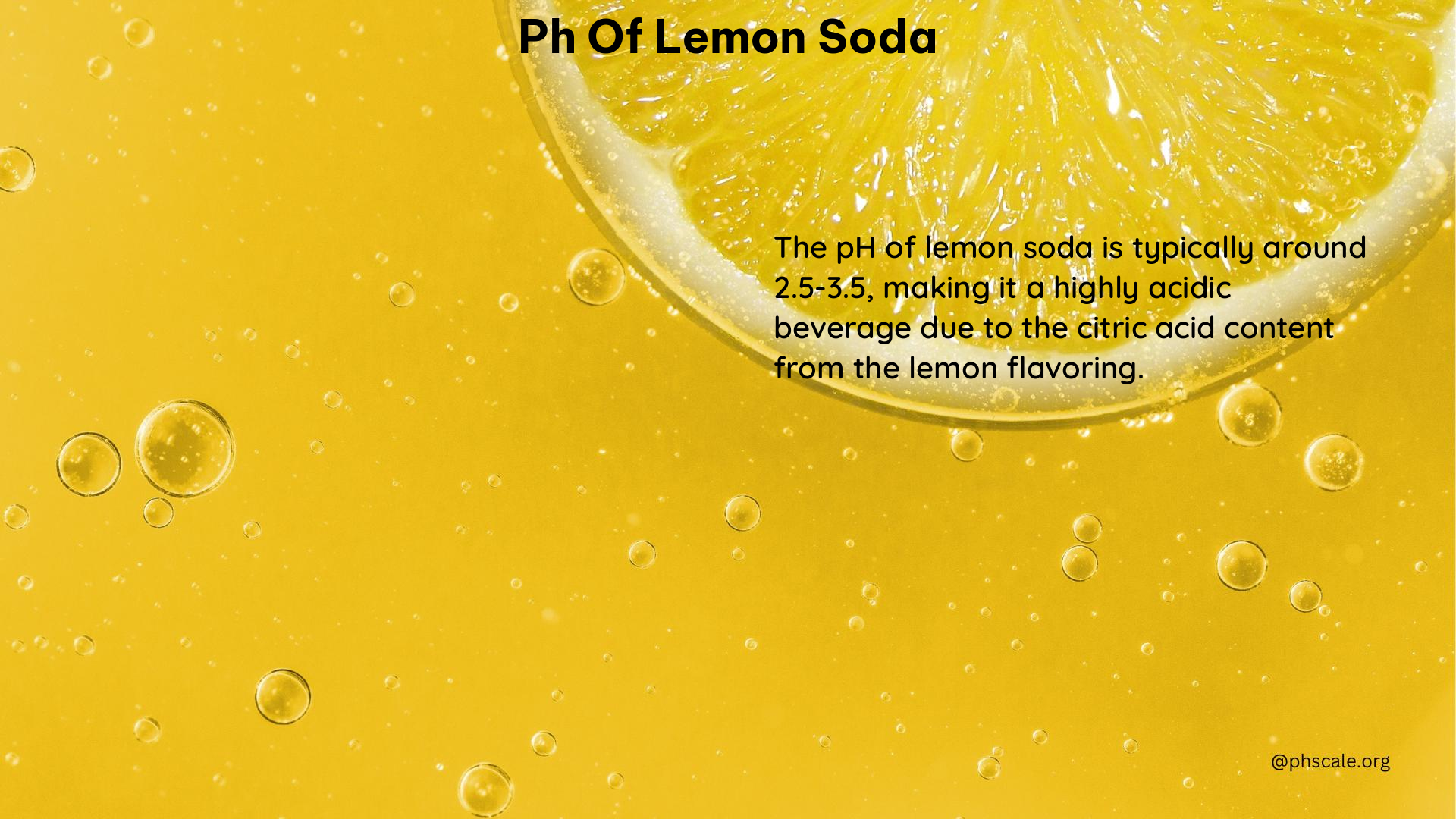The pH of lemon soda is typically around 3.0, making it more acidic than pure water, which has a neutral pH of 7. This acidity can have negative effects on teeth, as it can erode tooth enamel and make teeth more susceptible to decay and sensitivity.
Understanding pH
The pH scale measures how acidic or basic a substance is, ranging from 0 to 14. A pH below 7 is acidic, while a pH above 7 is basic. Each whole pH value below 7 is ten times more acidic than the next higher value. For example, a pH of 4 is ten times more acidic than a pH of 5 and 100 times more acidic than a pH of 6.
Effects on Teeth

The acidity in lemon soda can dissolve tooth enamel, leading to cavities. Enamel dissolves below a pH of 5.50, and dentin dissolves below a pH of 6.50. Lemon soda, with its pH of around 3.0, falls well below these thresholds, making it a significant contributor to tooth erosion.
Contaminants and Chemicals
Lemon soda contains citric acid, which is the primary contributor to its acidity. Citric acid is commonly used as a preservative and flavor enhancer in many beverages, including lemon soda.
Balancing pH
To balance the pH of lemon soda, you can try mixing it with a base like baking soda. For example, a 0.1 molar solution of baking soda has a pH of around 8.3, which can help neutralize the acidity of lemon soda.
History
Lemon soda has been a popular beverage for centuries, with its origins dating back to the early days of carbonated water. The addition of lemon flavor and citric acid has made it a refreshing and tangy drink, but its acidity has also raised concerns about its impact on oral health.
Helpful pH Quantity to Consume
It is generally recommended to limit consumption of acidic beverages like lemon soda to minimize their negative effects on teeth. Drinking water or other neutral pH beverages can help balance the acidity of lemon soda.
Home Remedies
To counteract the acidity of lemon soda, you can try the following home remedies:
- Rinse with water: After consuming lemon soda, rinse your mouth with water to help neutralize the acidity.
- Use a fluoride mouthwash: Fluoride mouthwash can help strengthen tooth enamel and reduce the risk of decay.
- Chew sugar-free gum: Chewing sugar-free gum can stimulate saliva production, which can help neutralize acidity and remineralize teeth.
Alternatives
If you are concerned about the acidity of lemon soda, consider the following alternatives:
- Water: Water is a neutral pH beverage that can help balance the acidity of lemon soda.
- Herbal teas: Many herbal teas have a neutral or slightly alkaline pH, making them a healthier alternative to lemon soda.
- Fresh lemon juice: While lemon juice is acidic, it can be mixed with water to reduce its acidity and make it a healthier alternative to lemon soda.
References
- Mark Danner, DMD. (2016). Table of Beverage Acidity. Retrieved from https://markdannerdmd.com/downloads/table-beverage-acidity.pdf
- New Albany Smiles. (2023). pH Values of Common Beverages. Retrieved from https://newalbanysmiles.com/ph-values-of-common-beverages/
- National Center for Biotechnology Information. (2016). The pH of Beverages Available to the American Consumer. Retrieved from https://www.ncbi.nlm.nih.gov/pmc/articles/PMC4808596/
- Healthline. (n.d.). Lemon Juice: Acidic or Alkaline, and Does It Matter? Retrieved from https://www.healthline.com/nutrition/lemon-juice-acidic-or-alkaline
- Main Street Dental. (2019). Health Benefits of Baking Soda and Lemon Juice. Retrieved from https://mainstreetdental.com.au/health-benefits-of-baking-soda-and-lemon-juice/.
